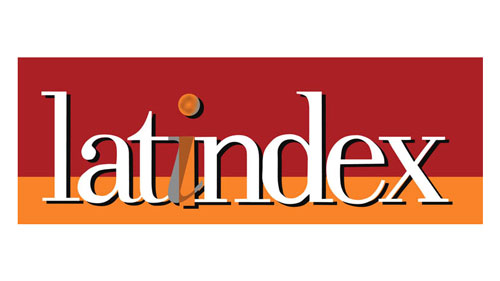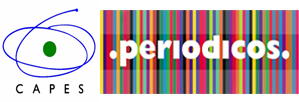The use of multimodal tips in lexical inferencing of English as a foreign language
DOI:
https://doi.org/10.26512/rhla.v19i1.26459Keywords:
English, lexical inferencing, readingAbstract
The present work is an exploratory study aimed at investigating the use of multimodal tips in the lexical inferencing of English as a foreign language. On theoretical grounds, the work is based on the assumptions of Connectionism Approach and Lexical Inferencing. In the experiment,162 students of English at the elementary level, were divided into two groups: experimental and control group. In the experimental group, Group A received oral and written tips, group B received only oral tips, and group C only written tips to infer the meaning of the target vocabulary. In the control group, group D did not receive any tips. In the analysis, data generated in the vocabulary test and evaluation questionnaire were considered. The results show that the use of both modalities of tips, oral or written, may contribute to inferencing and vocabulary learning. However, the combined use of oral and written tips revealed to be more efficient. Besides, in the comparative condition, the relevance of oral tips, in an explicit approach, for inferencing and vocabulary learning was observed. With this research, we intend to contribute to the students’ development of lexical inferencing and memory retention of the vocabulary in English as a Foreign Language.
Downloads
References
AZEVEDO, Bruno et. al. Vocabulário em Inglês como língua estrangeira: um breve estado da arte no Brasil. Estudos Anglo Americanos, ARAPUI, Santa Catarina, v. 46, n. 2, p. 62-94, 2017.
BOWER, Gordon. How might emotions affect learning? In: CHRISTIANSON, Sven-Ake. (Org.) The handbook of emotion and memory: research and theory. Nova Jersey: Lawrence Erlbaum Associates, 1992. p. 3-32.
CHEGENI; Nastaran.; TABATABAEI, Omid. Lexical Inferencing: The Relationship between Number and Density of Lexical Items and L2 Learners' Reading Comprehension Achievement. Journal of Language Teaching and Research, Finland, v. 5, n. 2, p. 306-312, 2014.
DALE, E. Vocabulary measurement: techniques and major findings. Elementary English, 42, p. 895-901, 1965.
HOSTETLER, Christina. L. Influences on inferences: The roles of L1 transfer and L2 proficiency on L2 lexical inferencing. 2013. Dissertação (Master in Science), Ball State University, Indiana, 2013.
MAYER, Richard. E. Multimedia learning. Cambridge: Cambridge University Press, 2001.
MAYER, Richard. Multimedia learning: are we asking the right questions? Educational Psychologist, Routledge, Taylor & Francis Group, v. 32 n. 1, p. 1-19, 1997.
MOTA, Mailce; ZIMMER, Márcia C. Cognição e aprendizagem de L2: o que nos diz a pesquisa nos paradigmas simbólico e conexionista. Rev. Brasileira de Linguística Aplicada, UFMG, Belo Horizonte, v. 5, n. 2, p. 155-187, 2005.
PROCÓPIO, Renata B. O uso do glossário hipermídia no ensino-aprendizagem implícito de vocabulário nos níveis elementar e intermediário de proficiência em inglês. 2016. 118 f. Tese (Doutorado em Linguística) ”“ Faculdade de Letras, UFJF, Juiz de Fora, 2016.
RAMOS, Falcon Dario Restrepo. Incidental vocabulary learning in second language acquisition: a literature review. Profile, v. 17, n. 1, p. 157-166, 2015.
RICHARDS, Jack C. The role of vocabulary teaching. TESOL Quartely 10(1), 1976.
SADEGHI, Karim; AHMADI, Negar. The effect of gloss type and mode on Iranian EFL learners’ reading comprehension. English Language Teaching, Canada, v. 5, n. 12, p. 100-110, 2012.
SANTOS, Mariana Oliveira dos; GANZAROLLI, Maria Emilia. Histórias em quadrinhos: formando leitores. Transinformação [online], Campinas, v. 23, n. 1, p. 63-75, 2011.
SCARAMUCCI, Matilde V. R. O papel do léxico na compreensão em leitura em língua estrangeira: foco no produto e no processo. 1995. 326f. Tese (Doutorado em Linguística) ”“ Instituto de Estudos da Linguagem, Unicamp, Campinas, 1995.
SOUZA, Patrícia N.; BASTOS, Lúcia K. B. O conhecimento lexical no ensino da leitura em língua estrangeira. The ESPecialist, São Paulo, v. 22, n. 1, p. 75-86, 2001.
ZIMMER, Márcia. A leitura em língua estrangeira e os efeitos da frequência e da consistência do insumo lexical em L2. Linguagem em (Dis)curso, Palhoça: Santa Catarina, v. 10, n. 1, p. 111-131, 2010.
Downloads
Published
How to Cite
Issue
Section
License

A Revista Horizontes de Linguística Aplicada de http://seer.bce.unb.br/index.php/horizontesla/index é licenciado sob uma Licença Creative Commons Atribuição-Uso não-comercial-Vedada a criação de obras derivadas 3.0 Unported.
- Autores mantém os direitos autorais e concedem à revista o direito de primeira publicação, sendo o trabalho simultaneamente licenciado sob a Creative Commons Attribution License o que permite o compartilhamento do trabalho com reconhecimento da autoria do trabalho e publicação inicial nesta revista.
- Autores têm autorização para assumir contratos adicionais separadamente, para distribuição não-exclusiva da versão do trabalho publicada nesta revista (ex.: publicar em repositório institucional ou como capítulo de livro), com reconhecimento de autoria e publicação inicial nesta revista.




